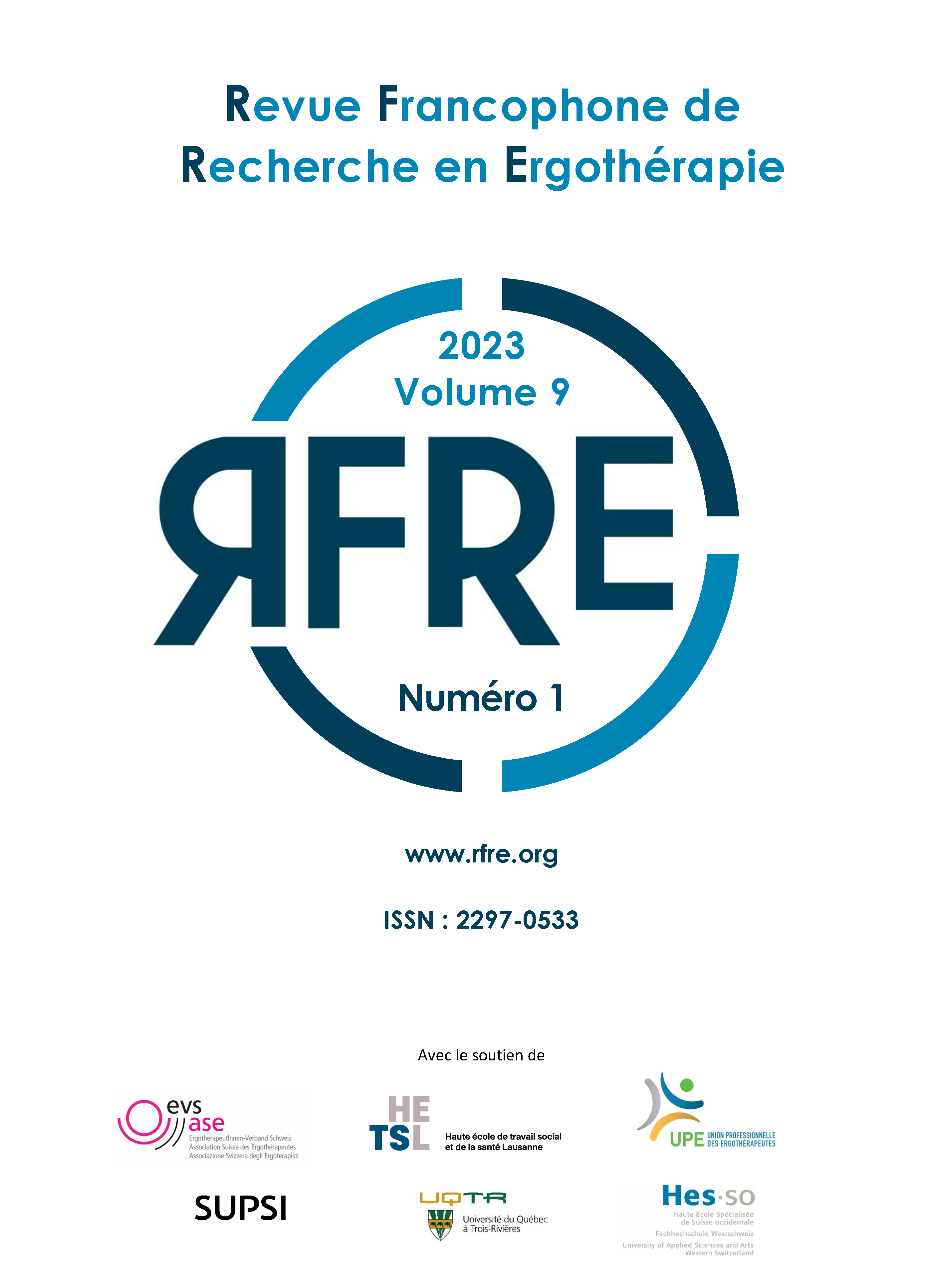Exploration of Occupational Therapy Practice in Intellectual Disability in Québec
DOI:
https://doi.org/10.13096/rfre.v9n1.199Keywords:
Ergothérapie, Déficience intellectuelle, Motif de référence, Outil d’évaluation, Méthode d’intervention, Occupational therapy, Intellectual disability, Reason for referral, Assessment tool, Method of interventionAbstract
Introduction: The main difficulties currently encountered by occupational therapists working with clients with intellectual disability (ID) include the lack of knowledge of their roles and evidence-based practice specific to this field. Although this area of practice falls within the expertise of occupational therapy, the current practice is characterized by a low degree of involvement, limited resources, and a low sense of confidence towards evaluation and intervention.
Aim: This study aimed to provide an overview of occupational therapy practice amongst people with ID aged 6 to 30 years old.
Method: Data were collected using an online bilingual questionnaire completed by Canadian occupational therapists. The questionnaire included 26 questions targeting the occupational therapy practice setting, as well as the challenges related to assessment and intervention.
Results: 57 occupational therapists completed the questionnaire. The results highlight that occupational therapists mainly use assessment tools that are not specific enough for people with ID as well as intervention methods that are not standardized and tailored to the needs of this clientele.
Conclusion: This study suggests a lack of evidence supporting occupational therapy practice with people with ID. There is a need for mobilization in order to improve this area of practice, in regard to the publication of evidence, the design of assessment tools and intervention methods, as well as the recognition of the role of the occupational therapist.
Downloads
Published
How to Cite
Issue
Section
License
Copyright (c) 2023 Sarah Rahimaly, Camille Gauthier-Boudreault, Dubé-Bergeron Emmanuelle, Gabriella Gagne, Mercier Anne-Sara, Couture Mélanie

This work is licensed under a Creative Commons Attribution-NonCommercial-ShareAlike 4.0 International License.












